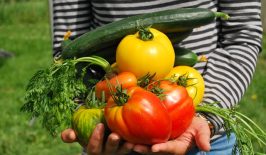With Expo 15 coming to an end, host city Milan is advocating an international food policy protocol that seeks to promote food security and sustainable development objectives.
With ‘Feeding the Planet, Energy for Life’ the theme of this year’s Expo, a protocol that seeks to tap into cities’ potential to contribute to food security through urban agriculture seems like a very high note to end on.
With 15 percent of food currently grown in urban areas and 65 percent of the world population expected to be city-dwellers by 2050, with Africa showing the fastest rates of urbanisation, the kind of joint-up action this pact will promote is a welcome and necessary step in the development of sustainable and just food systems
Milan Mayor, Giuliano Pisapia, launched the idea while attending the C40 – Climate Leadership Group in Johannesburg last year, and has since been working with a number of organisations to turn the proposal into a reality.
The Pact is to be signed by the Mayors of some 46 cities on World Food Day, on 16 October.
It will be an interesting and exciting time for all those grassroot projects, such as edible gardens like this one, community-supported agriculture initiatives like these, and urban farms – which Cuba has been leading the way on for some years, but also food banks and food education projects such as this one.
A number of projects also infuse some new thinking and approaches into the traditional urban gardening and urban food security model, using technology to connect, inform and support urbanites involved in local food movements. Seeds the Game uses gamification to get people active in growing their own food; Spoiler Alert – an app developed by MIT graduates – looks to tackle the problem of food waste by linking up retailers and food producers with non-profits and fertiliser manufacturers so that the former can sell or donate food that is no longer sellable to the latter; while, in a slightly different spin on this theme, MyFarm sees one real farm crowdsource ideas, decisions and management from so-called armchair farmers via an online platform.
Such projects have been springing up in urban centres in many countries over the last few years as a very local response to the issues of poverty, hunger, malnutrition, sustainability and community decline.
The benefits of urban farms and community gardens go beyond providing local residents with nutritious fresh produce at affordable prices or no cost. They can help combat social isolation, help people learn new skills and live more sustainably, and can even contribute to the regeneration of run down areas.
The Urban Food Policy Pact might just be a chance for these initiatives to get the support they deserve.



